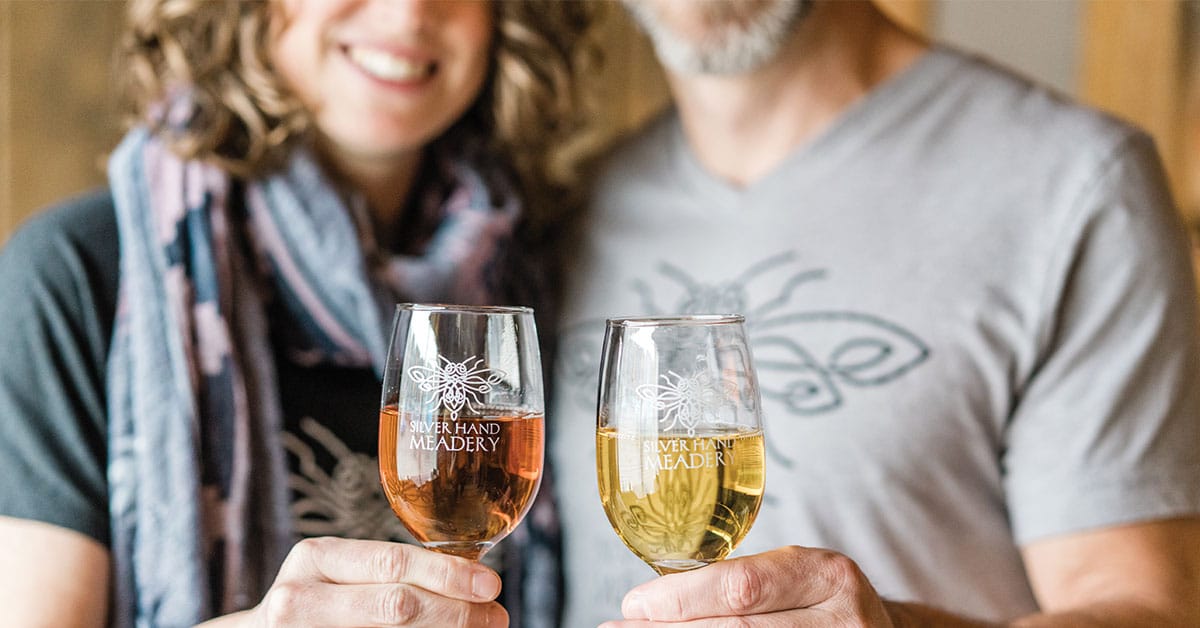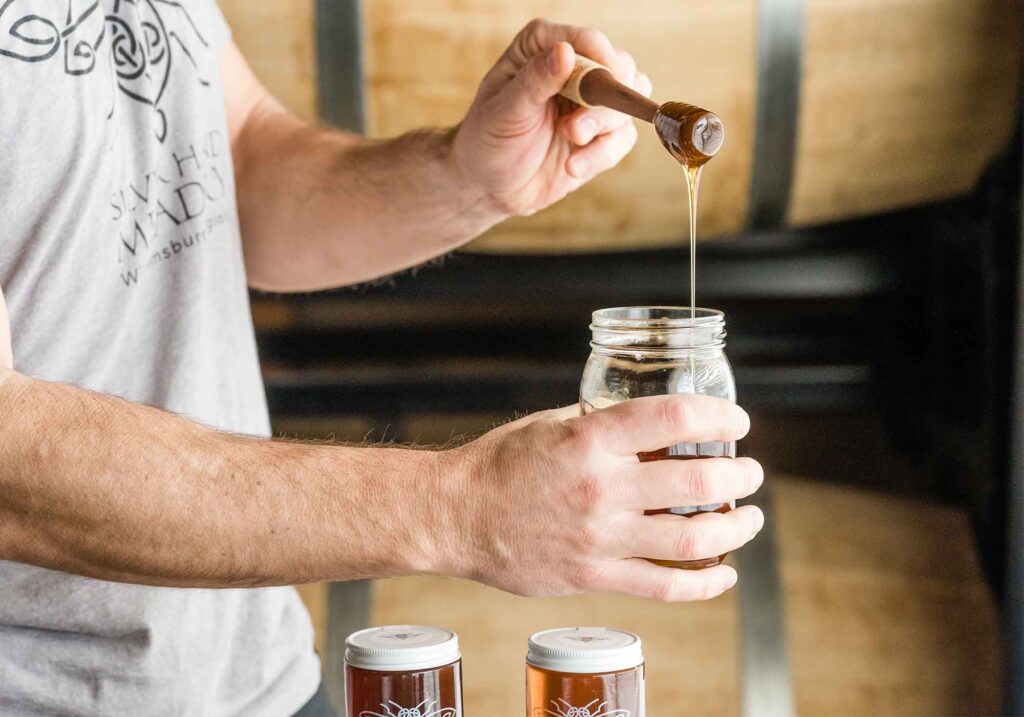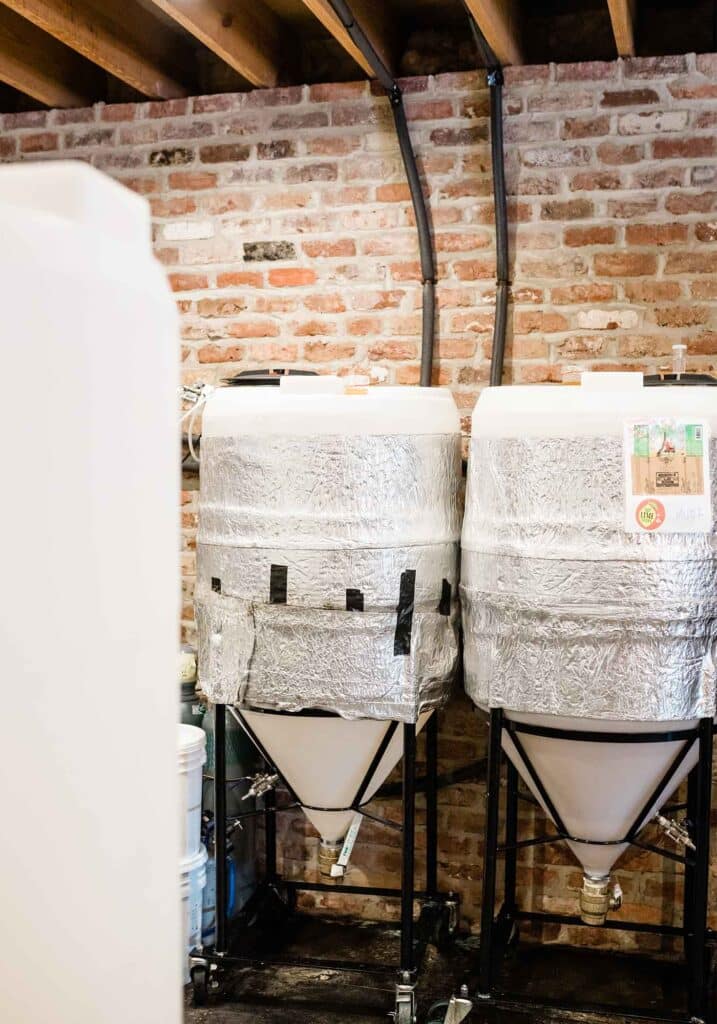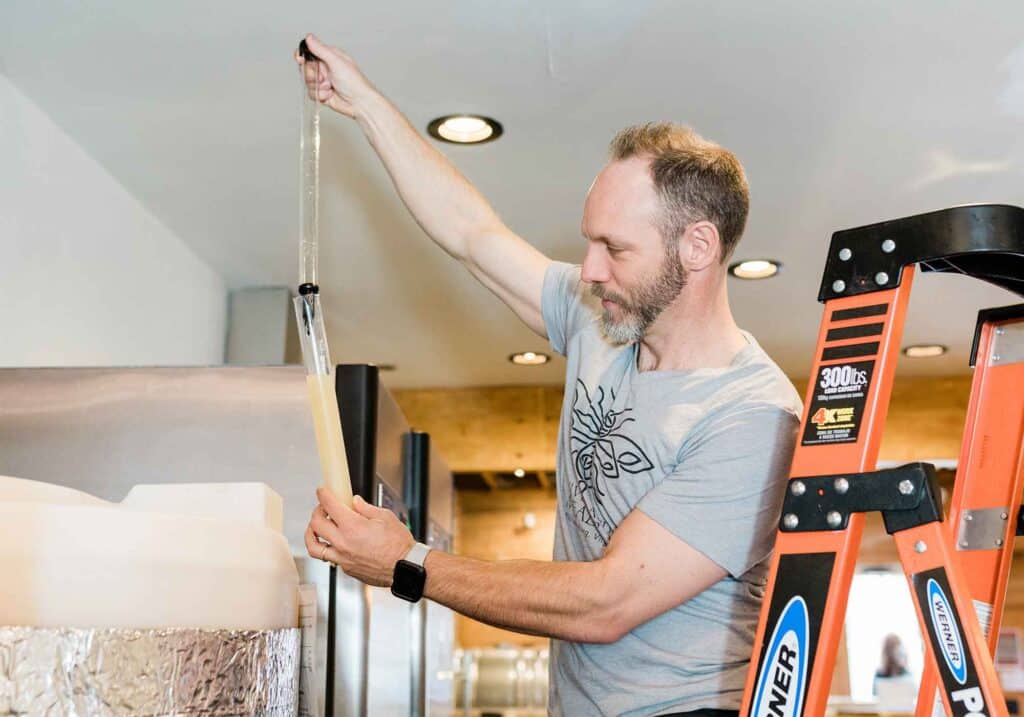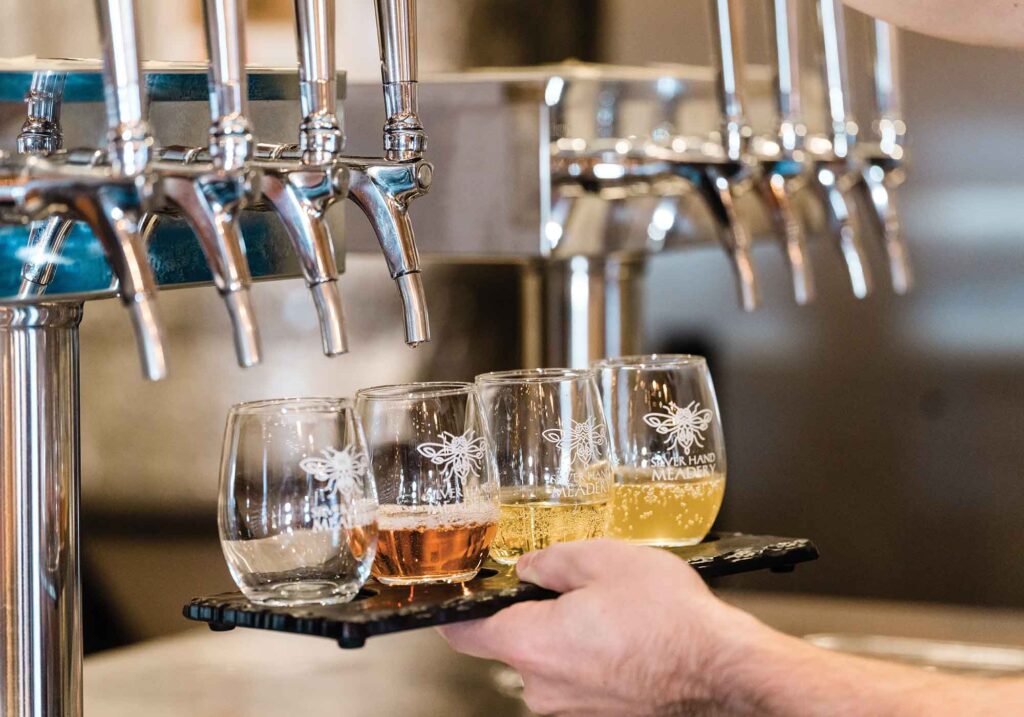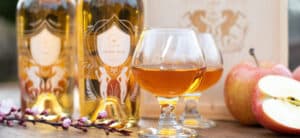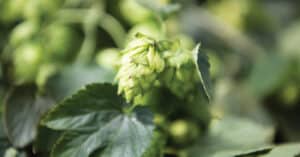You can thank Game of Thrones, at least in part, for the recent upswing in mead’s popularity. Before GOT, you may have read mentions of mead in the epic poem, Beowulf or in The Lord of the Rings books. In the United States, small home meaderies have led the recent resurgence, and many small commercial meaderies are gaining attention now too. In Virginia, there are about a dozen meaderies with the number tripling in the last three years alone. While Virginia is already well known for its award-winning wineries and breweries, this new industry is flourishing.
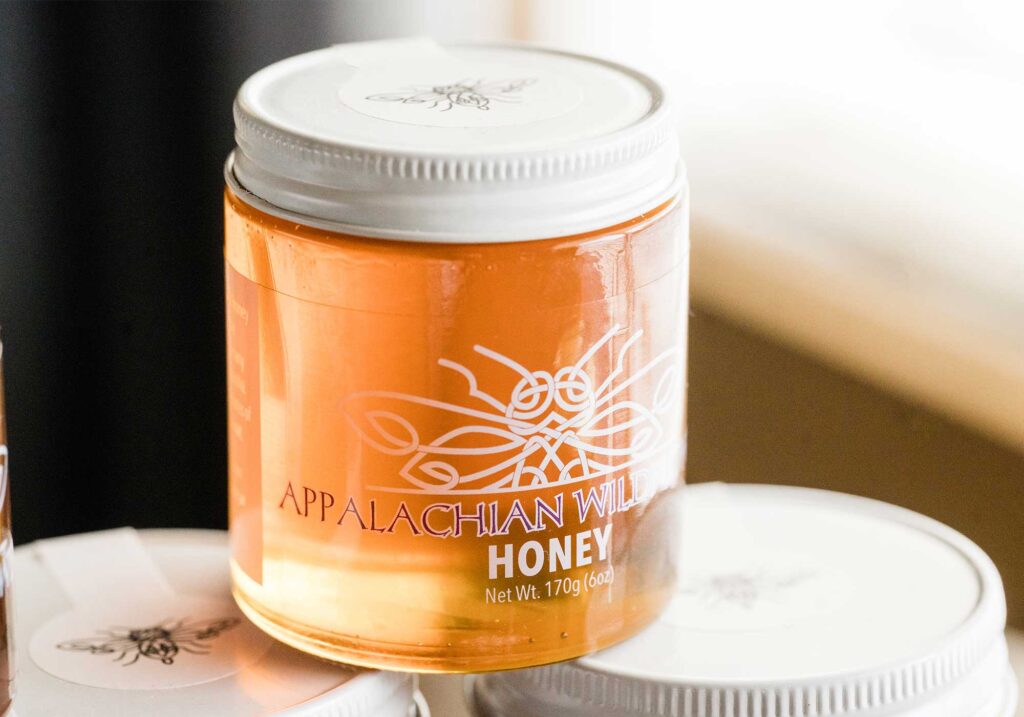
Historians often count mead, or honey wine, as the first alcoholic beverage ever produced. Honey wine refers to a fermented beverage prepared by combining honey, water and yeast. This one-of-a-kind beverage is unlike any wine, beer or cider, despite the fact that it is sometimes referred to by those terms. Unlike its other alcoholic counterparts, mead skips the boiling stage of production and goes directly to fermentation, resulting in a unique composition that yields distinct flavors.
In Virginia, Silver Hand Meadery is shining a bright light on this time-honored beverage. They won six titles in the Virginia Governor’s Cup in 2021, the second medal leader of all competing wineries. In the 2022 Governor’s Cup Competition they maintained their rankings, winning gold for five of their meads and demonstrating the quality and popularity of this sweet libation.
According to the Mead Beverages Market Report in Apr 2023, The global Mead Beverages market size was valued at USD 547.91 million in 2022. It is expected to expand at a CAGR of 17.76% during the forecast period, reaching USD 1461.12 million by 2028. In 2017 the American Mead Makers Association found that throughout a 1.5 year period, a new meadery was opening every three days in the US. A meadery opened every seven days in the rest of the world. There are now more than 400 meaderies in the United States and Virginia is creating some of the most exceptional meads.
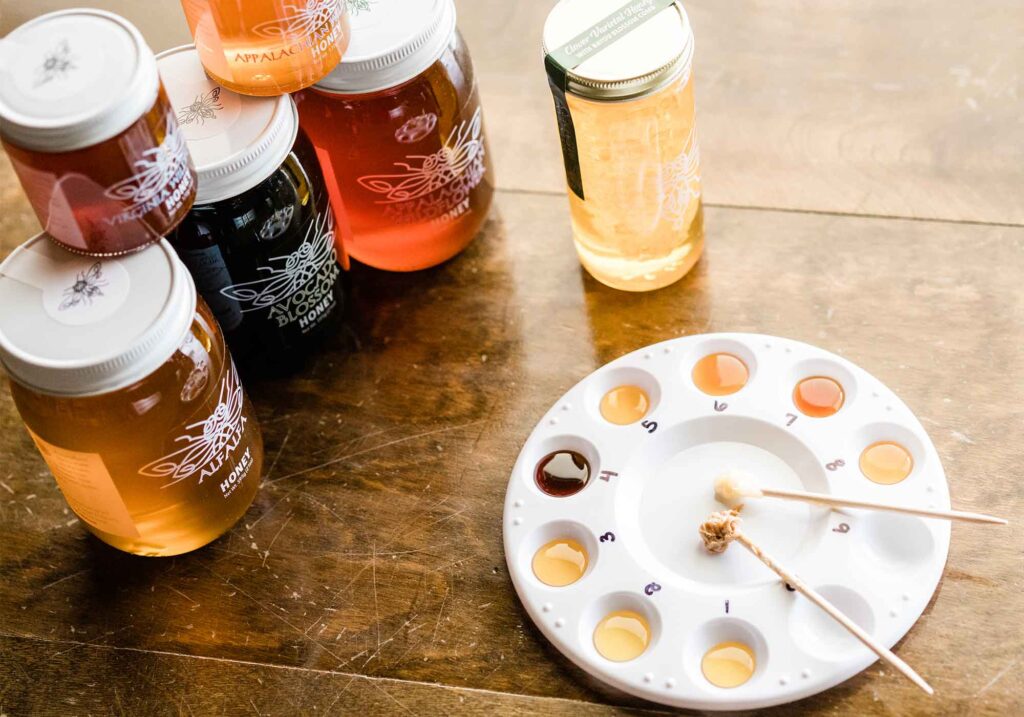
The History of Mead
While mead’s exact origins are unknown, it is often referred to as the “nectar of the gods” because some sources indicate that ancient Greeks consumed a honey-and-water mixture as a way to honor the goddess Aphrodite. It is also believed that Nordic Vikings used mead to commemorate victories in combat and the completion of long journeys. Historians believe people began making mead anywhere from 20,000 to 40,000 years ago in Africa, where early peoples used to drink the liquid made by honeybees and left behind in hollowed-out tree trunks.
It was common practice in early England to mix medicinal plants into mead, with the belief that the herbs would help digestion or lessen feelings of despair. In medieval times, honey wine was considered a vital component of a successful marriage. So much so that the word “honeymoon” originates from the drink now known as mead. Traditionally, newlyweds would imbibe this honey-based beverage to improve their chances of having children.
How Mead is Made
Fermentation is the first step in mead production, just as it is with any other alcoholic beverage. First, water is added to honey to dilute the viscous liquid, then yeast is added to convert the honey’s natural carbohydrates into alcohol. After the initial fermentation finishes, the mead is transferred to a different vessel for further fermentation that spurs additional clarifying.
Although it may appear straightforward at first glance, much like wine, mead may actually be quite complicated. Honey, like wine grapes, displays a diverse array of flavor profiles, which are determined by the type of flower pollen used to produce the honey. The idea of honey wine may inspire assumptions of sweetness, but mead may be brewed in a variety of styles, ranging from dry to semi-sweet to effervescent, making it a versatile beverage.
Much like wine, mead may actually be quite complicated.
Mead ranges from eight to 20 percent alcohol by volume (ABV), making it more comparable to wine than beer in terms of alcohol content. Also, much like fine wines, meads can be aged for a number of years, resulting in the development of additional layers of complexity.
Using Virginia Honey in the Production of Mead
From bee to bottle, the Virginia honeybee plays an essential role in the production of mead. Like wine, honey has unique varieties. The color, flavor and even aroma of honey differs depending on the nectar of flowers visited by the bees that made it. There are more than 300 unique types of honey available in the United States alone, each originating from a different floral source. Varietal honey results from honey bees sourcing nectar from a single flower type. As such, the different varieties of honey play a large part in determining mead varietals.
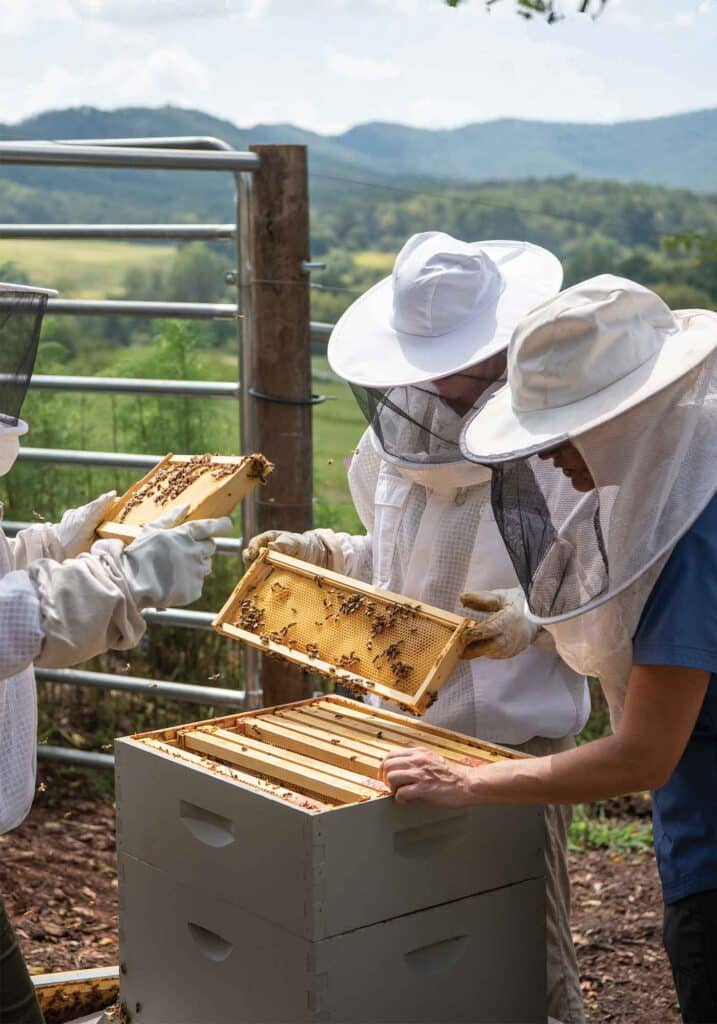
While most Virginia meaderies source their honey from local providers, some go above and beyond in producing their own honey. At Blacksnake Meadery in Southwest Virginia, some of the meadery’s beverages are produced exclusively from Blacksnake’s own honey. Owners Steve and Joanne Villers source most of their honey from onsite hives and then ferment the saccharine nectar into the delicious mead they’re known for. This fruitful relationship between Virginia honeybees and mead exemplifies the commonwealth’s farm-to-table movement in every step of the process.
As a matter of fact, Haley’s Honey Meadery outside of Richmond, VA, was founded with this relationship in mind. Founder Tonya Haley grew up in Virginia where her father was a beekeeper — giving her a unique insight into the world of beekeeping and the many benefits of bees. After graduating from college, Tonya returned to Virginia and began her own beekeeping business selling honey at local events.
After 20 years of selling honey, Tonya was inspired to begin making mead as a creative way to use the honey she was producing. Today, the meadery offers 20 different meads for customers to taste and continues to emphasize the importance of shopping local. Virginia honeybees are an integral part of the mead movement across the commonwealth, supporting the production of delicious beverages and award-winning meaderies.
Virginia Mead Collaborations
Thanks in large part due to the rise of the craft beverage industry, mead has catapulted into the spotlight once again. This historic beverage is becoming a go-to choice for many consumers, inspiring collaboration amongst brewers, cider-makers and vintners. These collaborations are leading to some delicious drinks across the commonwealth.
At Silver Hand Meadery, collaborations with companies such as Copper Fox Distillery in Williamsburg, Virginia, express creativity. Aging traditional meads in Copper Fox distillery rye whiskey barrels allows for a re-imagination of the historic beverage.
In Midlothian, VA, Funktastic Meads collaborates with local distilleries and breweries to produce eccentric libations. Their Waterless Raspberry Mead is produced in collaboration with Dida’s Distillery and highlights 190-proof Grape Brandy to fortify the mead to 21% alcohol. If you’re looking to sample a lighter mead, try Funktastic Meads’ collaboration with the Precarious Beer Project. The collaboration features an IPA produced with meadow-foam honey, which tastes like marshmallows, and a sour infused with Filipino influence.
Black Heath Meadery in Richmond, VA, works to re-create the world’s oldest fermented beverage through collaborations with local Virginia businesses. The award-winning meadery has produced delicious beverages in collaboration with Three Notch’d Brewing, Potter’s Craft Cider and many more craft breweries across the commonwealth. In the 2022 Governor’s Cup, their 2022 Blue Angel cyser featuring 100% Virginia wildflower honey and apple juice from Blue Bee Cider in Richmond, VA, took home a gold medal. Virginia meaderies continue to push the boundaries of the craft beverage industry, leading the way for unique collaborations and delightful drinks.
Different Styles of Mead
Traditional mead consists of three primary ingredients: honey, water and yeast. There are several subcategories of mead, distinguished from one another by their use of a wider variety of components such as fruits, grains and spices.
Acerglyn: Traditional mead made using honey and maple syrup instead of just honey.
Bochets: meads made using caramelized honey. This caramelization adds a layer of complexity to the traditional mead.
Braggot: mead made from malted grains and honey. Braggots are often thought of as a cross between beer and mead.
Cyser: Mead with apple juice or cider. The fermentation sugar must be 51 percent honey or higher to be called mead. Cysers come in dry or sweet varieties. Dry cyser, which is strong in apple malic acid, may require a lot of maturing to be palatable.
Melomel: meads made with added fruit or fruit juices. Depending on the process and fruits used, these can be very fruity, aromatic and sweet, or dry with just a hint of fruit essence. Cyser and Pyment, mead made with grape juice, are both considered to be sub-styles of this category.
Metheglins: meads made with additional herbs and/or spices. Popular spices include clove, cinnamon and ginger, while common herbs include mint, lavender and rosemary. Meads made from the Hippocras grape also fall into this category.
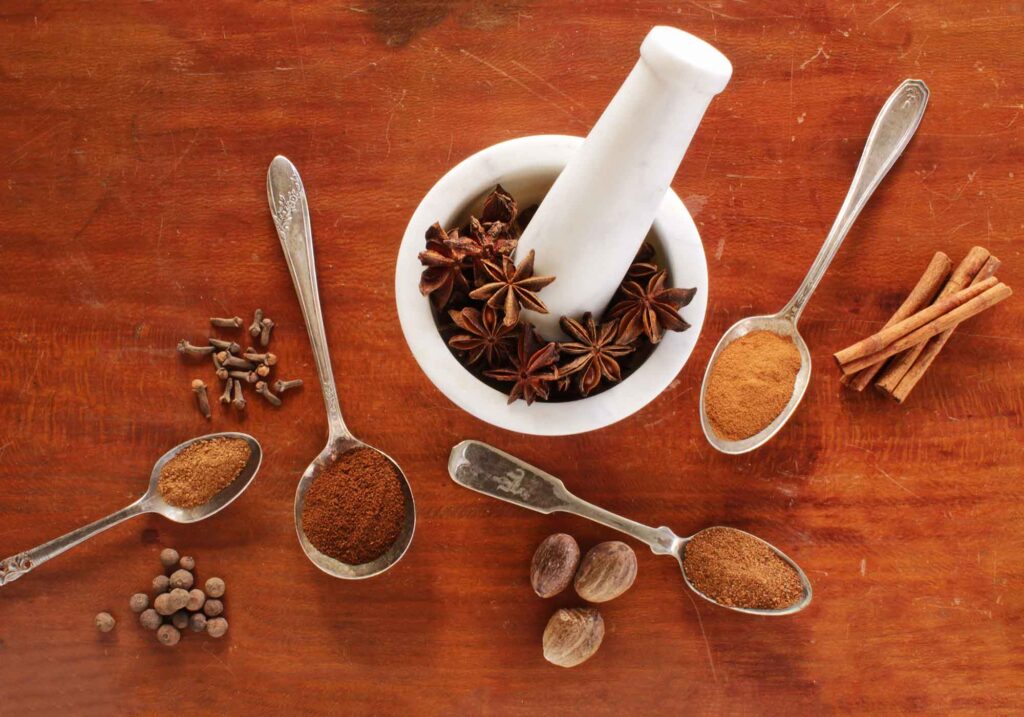
Virginia Meaderies You Can Visit
Black Heath Meadery (Richmond)
Black Heath Meadery works with local Virginia beekeepers and businesses to re-create mead. Black Heath won seven awards for their meads at the 2023 Governor’s Cup and their award-winning libations can be enjoyed and purchased by the bottle in their cozy, medieval-style tap room.
Blacksnake Meadery (Dugspur)
Black Snake Meadery is Southwest Virginia’s first meadery located among the stunning Blue Ridge mountains. Their meads – including bochets and dry meads – can be enjoyed on-site seasonally when the sipping porch is open. No need to worry though, their award-winning meads can be purchased year-round from local retailers in Charlottesville, Richmond, Northern Virginia and more.
Breezy Hill Meadworks (Smithfield)
Breezy Hill Meadworks is a farm meadery located in the countryside. Their offerings include meads produced from selected honey sources, melomels produced with farm raised and locally sourced fruit and metheglins that have a blend of select spices from local spice merchants. Enjoy Breezy Hill meads on-site or at home with online ordering.
Capital Hive Meadery (Leesburg)
Capital Hive Meadery is a small, locally owned and operated micro-meadery located in Northern Virginia. They offer full-strength meads, session meads and cider featuring local fruits, spices and nuts. Capital Hive’s products can be purchased and enjoyed on-site or ordered online to enjoy at home.
Funktastic Meads (Midlothian)
Funktastic Meads is an urban winery and meadery. They serve a variety of wines and meads available on tap in flights, single pours or to-go bottles. Enjoy your mead in their taproom or covered outdoor patio while indulging in expertly-paired foods.
Graham Ordinary Lodge & Meadery (Bedford)
Haley’s Honey Meadery (Hopewell)
Haley’s Honey Meadery is 20 miles south of Richmond, VA and specializes in the production of small-batch meads highlighting fruits and herbs from local small-produce farmers. Enjoy freshly-made meads by the glass or bottle alongside specialty cocktails and charcuterie boards, desserts and dips perfect for sharing.
Hill Top Winery & Meadery (Nellysford)
Hill Top Winery & Meadery, the oldest meadery in Virginia, is located in the rolling hills of the Rockfish Valley. Hill Top specializes in the production of fruit wines and meads, producing and bottling 32 unique varieties on the farm. Guests can enjoy authentic meads either inside the tasting room or outside on Hill Top’s expansive covered deck, which is surrounded by pollinator gardens and berry patches.
Misty Mountain Meadworks (Wincester)
Saga Meadery (Front Royal)
Saga Meadery is located in the heart of the Shenandoah Valley. Specializing in the production of bold-flavored meads, Saga Meadery offers tasting flights of meads and local Virginia wines, hard cider and mead slushies in their tasting room. Their meads can also be purchased online.
Silver Hand Meadery (Williamsburg)
Silver Hand Meadery produces several award-winning meads using local varietal honey. Their meads can be enjoyed on-site in the Tap Room by the flight or by the glass. Visitors may also enjoy self-guided honey tastings featuring 10 unique varieties of Virginia honey.
Stonehouse Meadery (Purcellville)
As mead continues to gain popularity as an extraordinary craft beverage, explore the movement across Virginia Wine Country. With over a dozen meaderies across the commonwealth producing award-winning meads and collaborating with local wineries, cideries and breweries to produce modern meads, there is something for everyone to enjoy.
Explore more about Virginia’s culinary scene with Virginia Wine & Country Life’s Food & Drink section. From award-winning winemakers, gardeners and Michelin Star chefs, Virginia is home to a robust farm-to-table movement defined by culinary delights and craft beverages such as heritage hard cider and award-winning craft beer. ~
JENNIFER BRYERTON, our co-publisher, holds a masters degree in education and grew up in a family of farmers and storytellers. She enjoys visiting exquisite gardens and vineyards, cooking, travel and decor and time at home, where beehives and a chicken coop dot the lawn, and borders overflow with roses, peonies and lavender.
BETH SELIGA of 3 Cats Photo began her photography career with the exhilarating rush of photographing professional cyclists from the back of a motorcycle. The recipient of multiple Recognition of Merit awards and a 2nd Place award in the senior category, presented by the National Association of Professional Child Photographers, she focuses on fine art wedding, portrait and senior photography.
R. L. JOHNSON is our Co-Publisher and Creative Director. Bethke studied at the prestigious ArtCenter College of Design and began her career as a professional photographer in Los Angeles. She moved into graphic design and art direction when she relocated to Charlottesville in 1994. As our company’s co-founder and visionary, she enjoys all aspects of storytelling.

